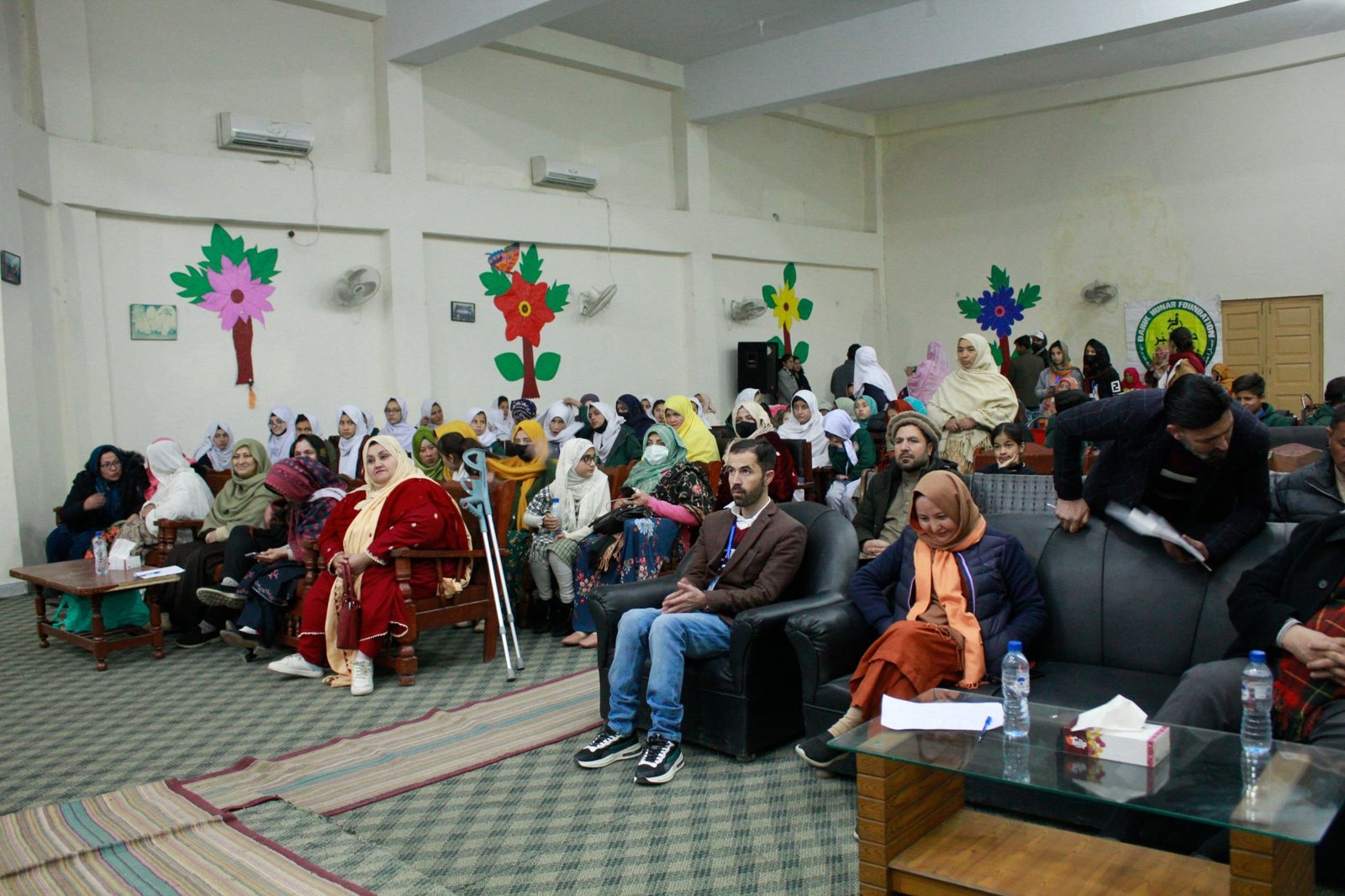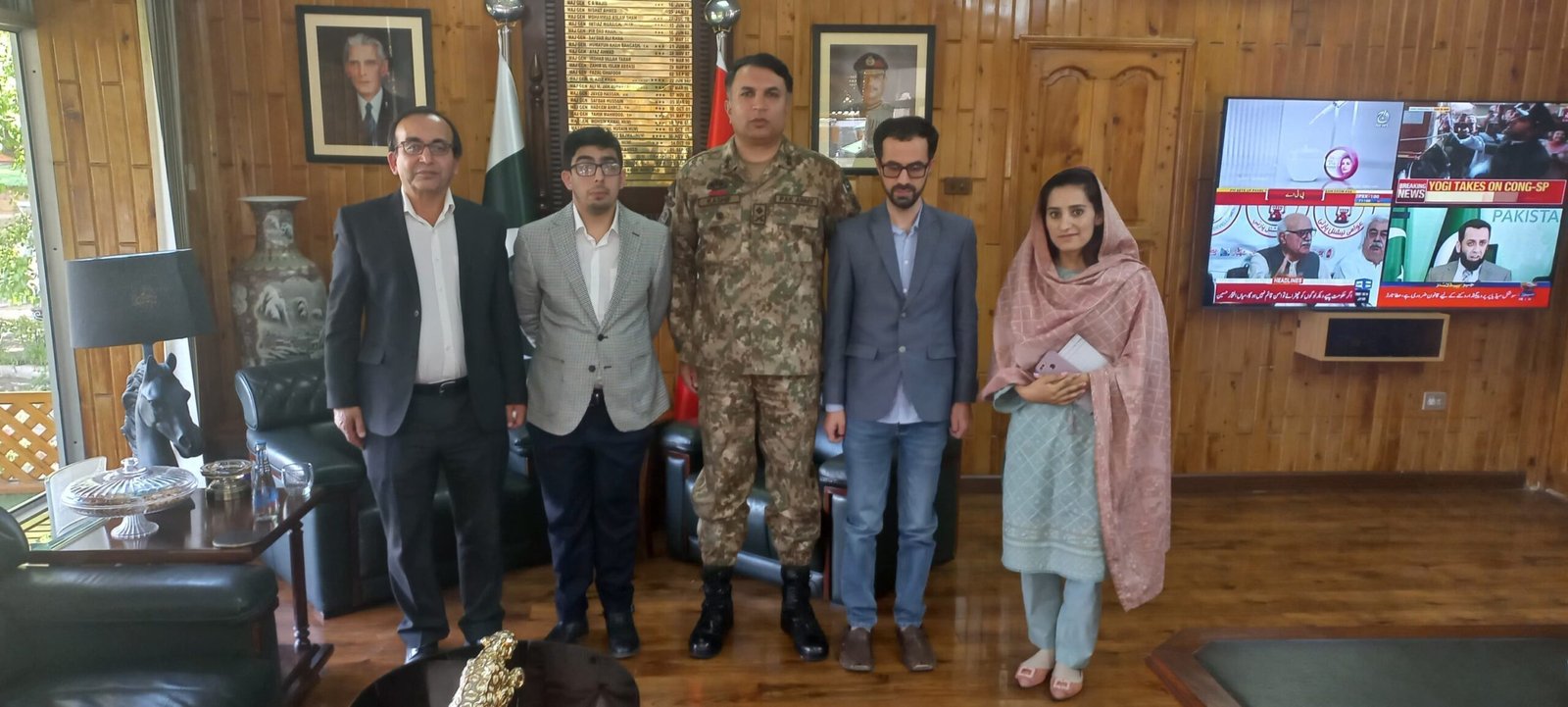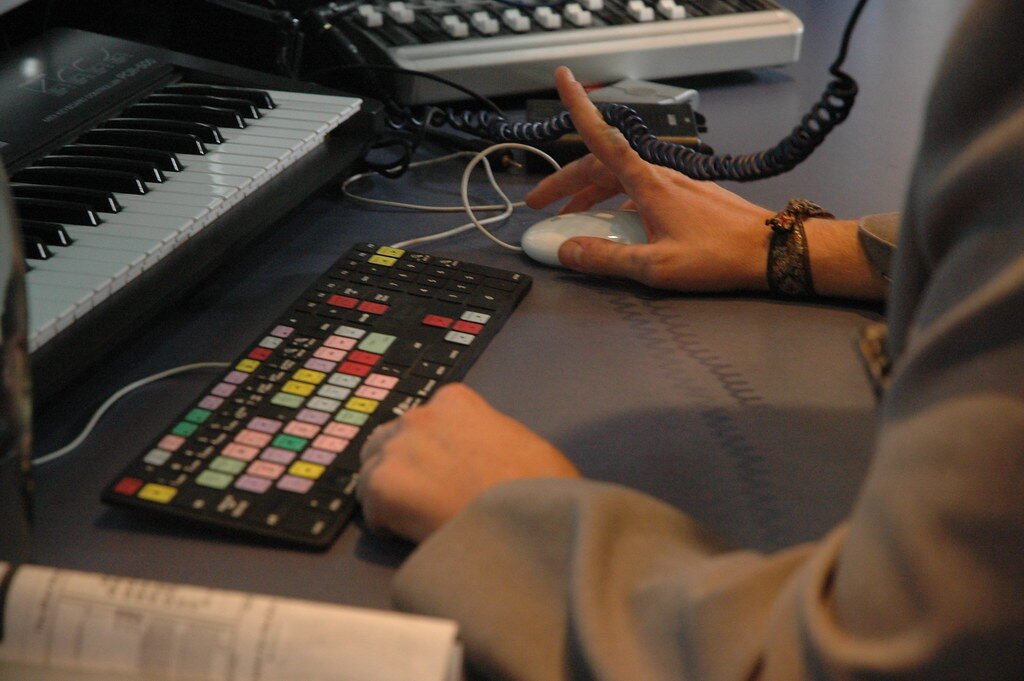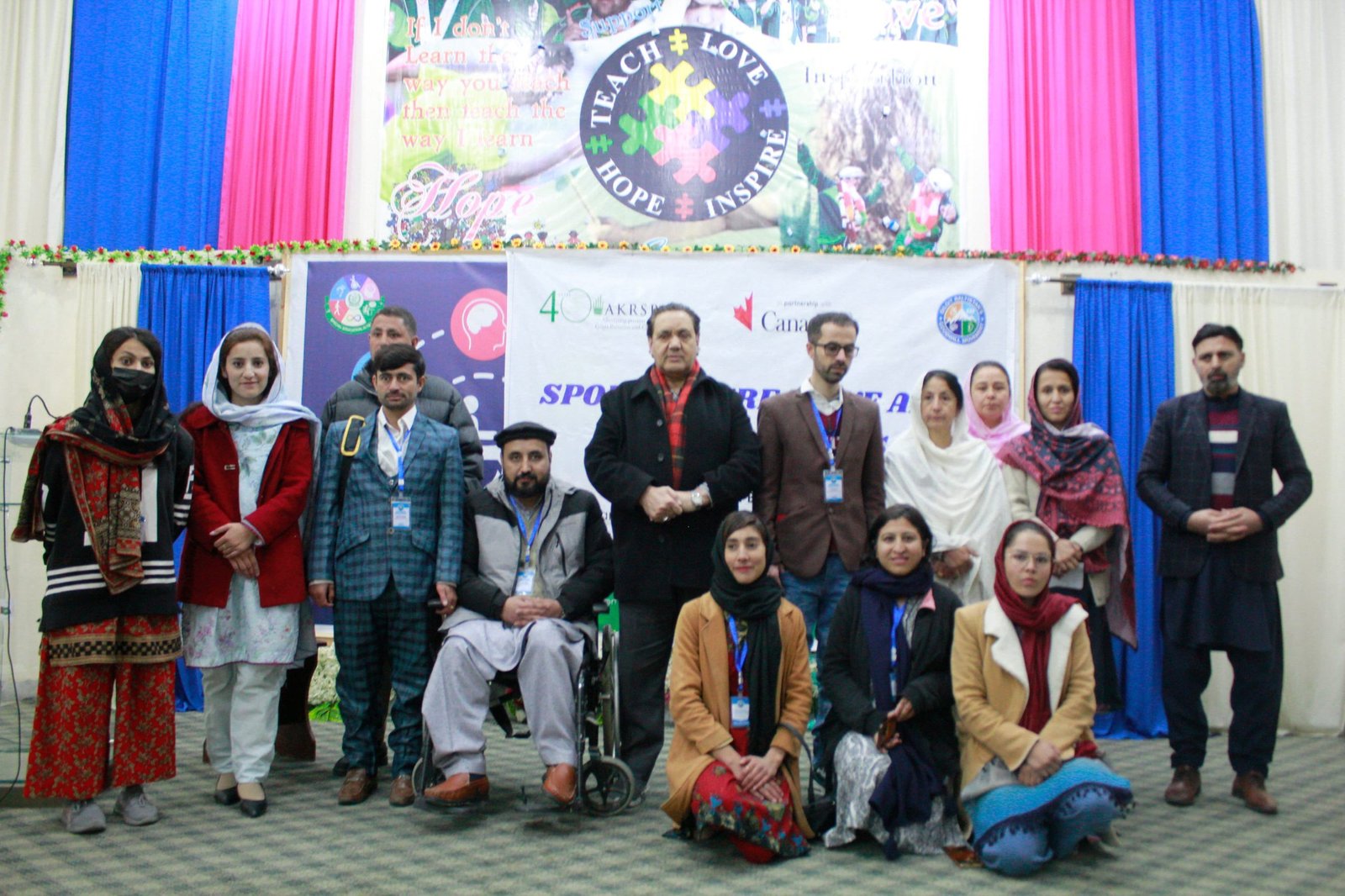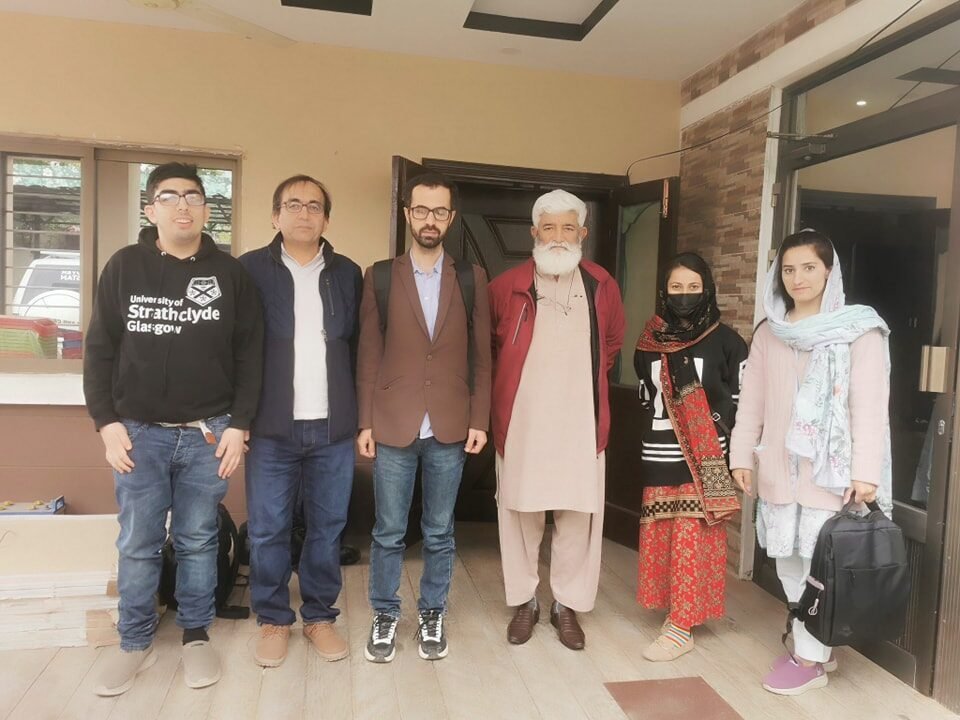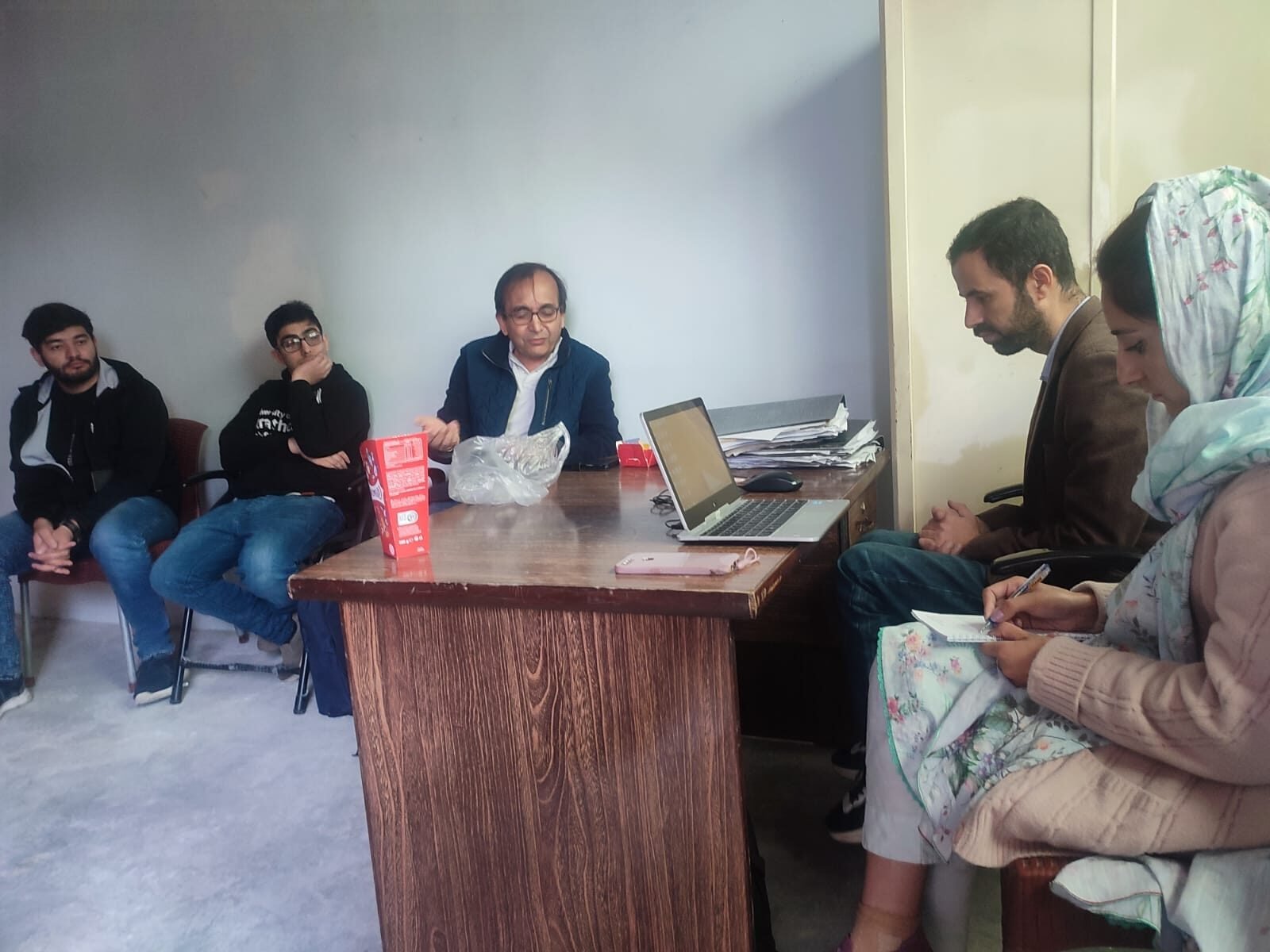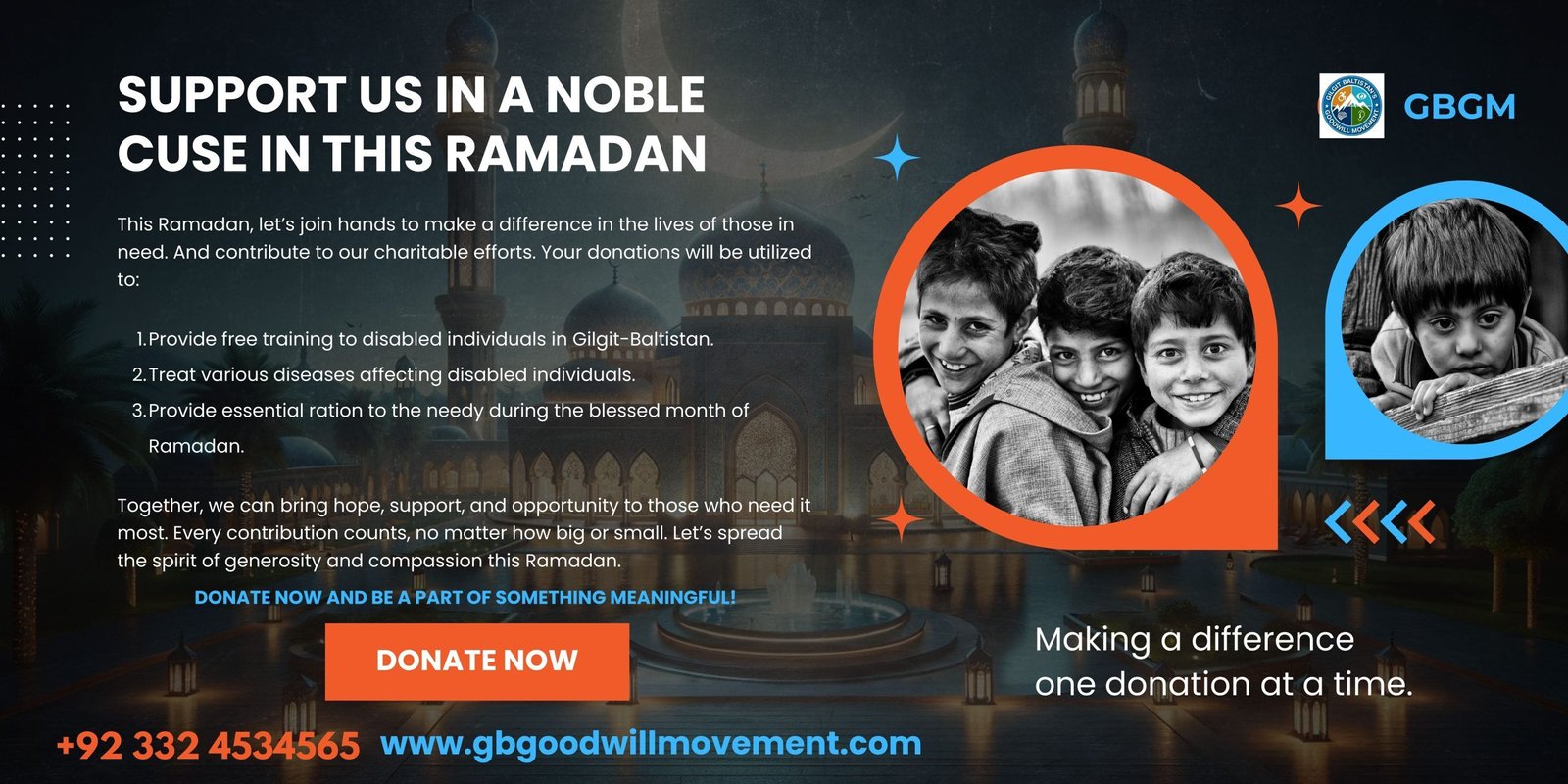Students 2024 intake
Exciting News from GB Goodwill Movement!
We are thrilled to announce that admissions are now open for new students
GB Goodwill Movement is dedicated to supporting and empowering special persons through various programs and resources. Our mission is to help them lead fulfilling and independent lives.
• Educational Programs
• Vocational Training
• Community Integration Efforts
• Personalized Support Plans
If you or someone you know could benefit from our services, don’t hesitate to reach out. Together, we can make a difference!
![]() Contact Us:
Contact Us:
Email: goodwillprojectgb@gmail.com
• Phone: 0332 4534565
• Address: GBGM Near ISI HQ, Gilgit
Join us in our journey to create a more inclusive and supportive community.
Share this article to spread the word!
Community leadership stems from the top
To understand what it means to be able or disabled, it’s essential to delve into the definitions and societal implications of these terms. Here’s a comprehensive exploration of the concepts:
Definitions and Societal Implications
Able-bodied: This term refers to individuals who do not have significant physical or mental impairments affecting their daily activities. Able-bodied individuals can typically perform tasks and engage in activities without needing special accommodations or assistance.
Disabled: Being disabled refers to individuals who have physical, mental, or sensory impairments that significantly affect their ability to perform everyday tasks. Disabilities can be visible (such as mobility impairments requiring a wheelchair) or invisible (such as cognitive impairments affecting memory or learning). The concept of disability is not solely about the impairment but also about how society structures its environment and systems, often in ways that do not accommodate people with diverse abilities.
Differentiating Between Able and Disabled
Traditional Perspective: Traditionally, the distinction between able and disabled is based on the presence or absence of impairments that affect a person’s functioning. However, this binary perspective can be limiting.
Modern Understanding: Modern understanding emphasizes a spectrum of abilities and disabilities, recognizing that everyone experiences some form of limitation at different points in their lives. For example, an able-bodied person might temporarily be disabled due to an injury, illness, or aging.
Social Model of Disability: This model argues that disability arises not from the impairment itself but from societal barriers and attitudes. For instance, a person who uses a wheelchair is only ‘disabled’ in environments that lack ramps and elevators. This perspective shifts the focus from the individual’s limitations to the need for societal change and inclusivity.
Able People Experiencing Disability
Even able-bodied individuals can experience limitations akin to those faced by people traditionally labeled as disabled:
Temporary Disabilities: Injury, illness, or aging can result in temporary disabilities. For instance, a broken leg might require someone to use crutches, temporarily limiting their mobility.
Psychological or Emotional Challenges: Able-bodied individuals might face psychological or emotional challenges that impair their functioning in certain contexts, such as anxiety or depression affecting their ability to work or socialize.
Situational Impairments: An able-bodied person might feel ‘disabled’ when traveling to a country where they do not speak the language, facing communication and navigation barriers.
Bridging the Gap
Closing the gap between able-bodied and disabled individuals involves several key strategies:
Community Leadership: Empowering community leadership to take initiative is crucial. Strong community leaders can promote inclusion for persons with disabilities by fostering environments that support diverse needs. This leadership can be within any type of community, not just religious but also social and physical communities.
Inclusion and Accessibility: Creating inclusive environments that accommodate diverse abilities is essential. This can involve:
- Infrastructure: Ensuring public spaces are accessible to all, such as ramps and elevators for mobility impairments.
- Policy: Implementing policies that promote equal opportunities for people with disabilities, such as inclusive hiring practices and anti-discrimination laws.
- Education: Raising awareness and educating the public about disability issues to reduce stigma and promote understanding.
Empowerment Through Inspiration
The poetry of Allama Iqbal serves as an inspirational call to action: “May the darkness of this world disappear through this life of mine. May every place light up with the sparkling light of mine.” These lines underscore the potential for each individual to contribute positively to society and bring about change, highlighting the importance of individual and collective efforts in promoting inclusivity.
Conclusion
Understanding and addressing the distinctions between able and disabled requires a holistic and inclusive approach. By shifting from a binary perspective to one that recognizes a spectrum of abilities, society can better support and value the diverse experiences of all individuals. Empowering community leadership, creating inclusive environments, and fostering understanding are key steps in bridging the gap and promoting a society that values the contributions of everyone, regardless of their physical or mental capabilities.
Top things not to say to a disabled person
Many disabled people are often overlooked, not because of their abilities, but due to judgments based on their voice, facial expressions, or body weight.
Phone calls
I’ve had my fair share of phone calls in which I’ve been referred to as a “dark horse.” This label often stems from the fact that people underestimate disabled people, only fully recognizing their potential or abilities once they see the results of my work. Disabled people do need your help, and it’s not often Rajiv from India or Prince of Nigeria. Often, people do not realise the opportunities they lose because they pre-judge someone.
Solution
Engage in a conversation with them. A disabled person might not be going out of their way to accommodate you because they want to feel normal. Instead, ask for their email address or suggest another solution. You could also ask them to turn on closed captioning, which can be helpful without causing offense.
Do not judge them by their weight or appearance.
It may be the case that some people have health issues requiring sufficient sugar intake. For instance, we had a case in Ghizer where we observed individuals who were malnourished but needed high sugar levels. This condition, known as hypoglycemia, causes low blood sugar and necessitates regular intake of sugar to maintain health.
Do not give them the I will do it later excuse
Most people often resort to the excuse of “I will do it later.” We’ve encountered numerous cases where individuals claim to support disabled people but then use this excuse to delay or avoid taking action. This behavior indicates a lack of genuine commitment and can be seen as a form of neglect or abuse behind their backs. By consistently postponing help or support, these individuals fail to acknowledge the immediate needs of disabled people, effectively undermining their well-being and showing a disregard for their circumstances.
This pattern of behavior not only erodes trust but also perpetuates the challenges faced by disabled individuals who rely on timely assistance and support.
Solution
write a nice email to a disabled person, explaining your own circumstances. I wanted to reach out and share a bit about my own circumstances and to understand yours better. Recently, I have been reflecting on the importance of clear and respectful communication, especially when it comes to understanding each other’s unique needs and challenges. That way the disabled person knows you are on their to do list, and will approach them in the future if needs be.
Conclusion
In conclusion, it’s crucial to approach conversations with disabled individuals with sensitivity and respect. Avoid making assumptions about their abilities, and refrain from saying things that may come across as dismissive or patronizing. Phrases like “You don’t look disabled” or “You’re so brave” can be harmful, even if well-intentioned. Instead, focus on listening, understanding, and treating them with the same dignity and respect you would offer anyone else. By being mindful of our words, we can create a more inclusive and supportive environment for everyone.
Skills Development Training 1st Cohort
We are thrilled to announce that today, we have successfully completed the training of the 1st Cohort of Students at the Goodwill Centre. This achievement marks a significant milestone in our commitment to providing quality education and skill development to our community.
Over the course of the training program, our students have shown remarkable dedication and enthusiasm, gaining valuable knowledge and skills that will empower them to achieve their goals. We are incredibly proud of their hard work and progress.
We would like to extend our heartfelt thanks to our dedicated trainers, staff, and supporters who have made this program possible. Your contributions and support have been invaluable in making this vision a reality.
As we celebrate this accomplishment, we look forward to continuing our mission of education and empowerment with future cohorts. Together, we are building a brighter future for all.
Success stories
Some of the students have already secured employment, starting promising new careers in their respective fields and some have decided to stay at Goodwill to help us. Others have chosen to further their education, enrolling in advanced courses and programs to deepen their knowledge and enhance their skills. Their success is a testament to the effectiveness of the training program and their personal commitment to growth and development.
Whats next
We are excited to announce that we are now opening enrollment for new students. This is an excellent opportunity for individuals who are eager to gain valuable skills and knowledge that can transform their futures. By joining our training programs, new students will have access to a range of resources, experienced instructors, and a supportive learning environment. We encourage all prospective students to apply and take the first step towards a brighter and more successful future.
Meeting with Force Commander Northern Areas
His Excellency Major General Kashif Khalil, Force Commander Northern Areas, recently held a round table discussion with the team from the Gilgit Baltistan Goodwill Movement, focusing on the pressing issues faced by persons with disabilities in the region. The meeting aimed to foster a collaborative environment where stakeholders could openly discuss challenges and strategize potential solutions to improve the quality of life for disabled individuals in Gilgit Baltistan.
During the discussion, the Force Commander expressed his commitment to addressing the unique needs and concerns of the disabled community. He emphasized the importance of inclusivity and the need for comprehensive policies that ensure equal opportunities for all citizens, regardless of their physical or mental abilities.
The Gilgit Baltistan Goodwill Movement team highlighted several key issues, including the lack of accessible infrastructure, limited healthcare services, and the need for better educational and employment opportunities for persons with disabilities. They also discussed the social stigmas that often hinder the full participation of disabled individuals in society.
In response, the Force Commander assured the team of his support in advocating for policy changes and resource allocation to address these issues.
The round table discussion concluded with a renewed commitment from all parties to work together towards creating a more inclusive and supportive environment for persons with disabilities in Gilgit Baltistan.
The Force Commander’s proactive engagement and the collaborative efforts of the Gilgit Baltistan Goodwill Movement set a promising foundation for future initiatives aimed at empowering the disabled community.
His leadership and dedication to this cause highlight the crucial role of the Force Commander in promoting social welfare and development in the Northern Areas.
Relations with the Chief Secretary
The Team Goodwill Movement extends its heartfelt gratitude to Chief Secretary Gilgit Baltistan for graciously hosting us. We are deeply appreciative of the warm hospitality and support extended to our team during our time in Gilgit Baltistan.
Several key issues were addressed, with accessibility emerging as a central theme. We engaged in productive conversations regarding the importance of ensuring equal access to essential services, education, and opportunities for all members of society, particularly those in remote or marginalized areas. We emphasized the need for proactive measures to enhance accessibility, including the development of infrastructure, transportation systems, and technological solutions that cater to diverse needs.
Moreover, we explored strategies to promote inclusivity and empower individuals with disabilities, recognizing their valuable contributions to society. By advocating for inclusive policies and implementing inclusive practices, we aim to create a more accessible and inclusive environment that enables everyone to participate fully in social, economic, and cultural life.
Meeting with Col Wali of the Moawin Foundation
On the second day in office, we were privileged to engage in a profound meeting with Colonel Wali, the esteemed regional head of the Moawin Foundation. The foundation’s noble mission to “Transform Lives through Education & Skill Development” resonated deeply with our own aspirations within the Gilgit Baltistan’s Goodwill Movement. As we sat down to deliberate, it became abundantly clear that a partnership between our two entities held immense potential to catalyze positive change and empower communities.
Colonel Wali articulated the Foundation’s commitment to providing access to quality education and fostering skill development among marginalized populations. Their initiatives ranged from establishing schools in remote areas to vocational training programs aimed at equipping individuals with the tools they need to thrive in today’s competitive landscape.
In turn, we shared our vision for the Gilgit Baltistan’s Goodwill Movement, emphasizing our dedication to grassroots empowerment and sustainable development. Our focus on community-driven solutions and inclusive growth aligned seamlessly with the ethos of the Moawin Foundation.
Throughout our discussion, ideas flowed freely, sparking innovative strategies for collaboration. We explored potential joint ventures, such as establishing educational centers in underserved regions of Gilgit Baltistan or launching joint skill development workshops tailored to the specific needs of local communities.
Furthermore, we identified areas where our respective strengths could complement each other, whether through sharing resources, expertise, or networks. By pooling our resources and leveraging our collective experience, we envisioned creating a synergy that would magnify our impact and reach even the most marginalized individuals.
As the meeting drew to a close, both parties expressed excitement about the possibilities that lay ahead.
We recognized that this partnership was not just about transforming individual lives but about igniting a ripple effect of positive change across entire communities.
With shared determination and a commitment to collaboration, we departed, eager to embark on this journey together towards a brighter, more inclusive future for all
Visiting Gilgit for a cause
Every year, I visit Gilgit for the cause of disabled persons within the region. I visit it not only because of personal reasons but to serve the NGO free of cost. This time in April, I visited Gilgit to see how we can further amplify the Goodwill message in government and private sector offices.
Pay us through Payoneer
We extend our heartfelt gratitude to each and every donor who generously contributed to our Ramadan fundraiser. Your support has been invaluable in helping us make a meaningful impact in our community during this blessed month. Through your kindness and generosity, we have been able to provide essential assistance to those in need, ensuring that they have the resources and support necessary to observe Ramadan with dignity and peace. Your contributions have truly made a difference, and we are deeply thankful for your continued support and generosity. May your generosity be rewarded manifold, and may the blessings of Ramadan be upon you and your loved ones.
Acknowledging feedback and considering recommendations is a crucial aspect of growth and improvement. We appreciate the valuable suggestions provided and are committed to incorporating them into our future endeavors. Your insights help us refine our approach, ensuring that we can better serve our community and maximize the impact of our initiatives. Rest assured, your feedback is highly valued, and we are dedicated to continuous improvement to better meet the needs of those we serve. Thank you for your thoughtful input, and we look forward to implementing these recommendations to enhance our efforts in the future.
Our first step towards ensuring that more donors are able to donate is that we have created a Payoneer account which works within Pakistan and the United States, and the UK.
Please see the Payoneer details below for the UAE, Canada, UK, EU, Japan and the US
UAE
Bank name:
Standard Chartered
Bank address:
Standard Chartered Tower, Emaar Square Dubai, United Arab Emirates
SWIFT code:
SCBLAEADXXX
IBAN:
AE720446420010001343782
Beneficiary name:
GHULAM Muhammad BAIG
Canada
Bank name:
Citibank NA Canadian Branch
Bank address:
123 Front St. West Toronto, ON M5J 2M3
Institution number:
0328
Transit number:
20012
Account type:
CHECKING
Account number:
3001410372
Beneficiary name:
GHULAM Muhammad BAIG
UK
Bank name:
Barclays
Sort code:
231486
Account number:
15266357
Beneficiary name:
GHULAM Muhammad BAIG
Japan
Bank name:
MUFG Bank, Ltd.
Bank address:
7-1 Marunouchi 2-Chome, Chiyoda-ku Tokyo, Japan
Bank code:
0005
Branch code:
869
Account type:
Savings / Futsu
Account number:
3746156
Beneficiary name:
ペイオニア ジヤパン(カ
USA
Bank name:
Citibank
Bank address:
111 Wall Street New York, NY 10043 USA
Routing (ABA):
031100209
SWIFT code:
CITIUS33
Account number:
70587070000958966
Account type:
CHECKING
Beneficiary name:
GHULAM Muhammad BAIG

